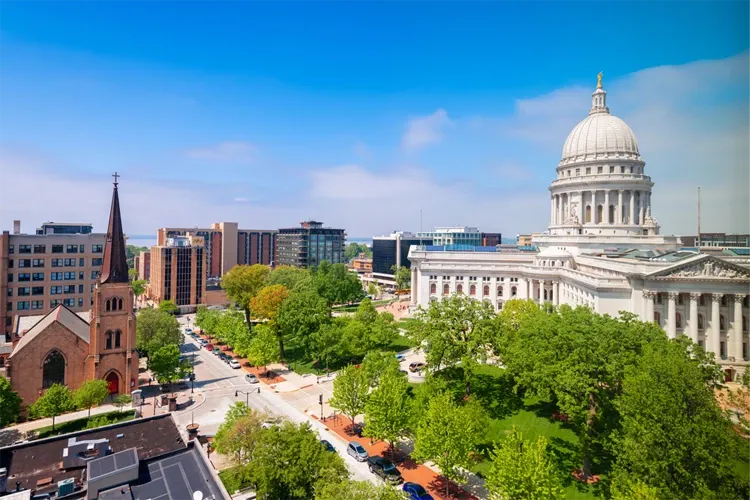Wisconsin voters overwhelmingly approved a ballot measure to enshrine voter identification requirements in the state constitution, fortifying current election security laws in the state.
Wisconsin Question 1 makes clear that “no qualified elector may cast a ballot in any election unless the elector presents valid photographic identification.” The document must be issued by the state government, the federal government, an Indian tribe, or a university in Wisconsin.
Nearly two-thirds of voters approved the measure on Tuesday, with nearly 63% concurring that voter identification requirements should indeed be enshrined in the Wisconsin state constitution.
President Donald Trump celebrated the ballot measure outcome on Truth Social, asserting that the vote was the “biggest win of the night” for the Republican Party. The commander-in-chief said “Democrats fought hard against this presumably so they can cheat” in future elections.
Wisconsin voters are already required to show photo identification, but the amendment to the Wisconsin state constitution ensures that such requirements will remain in effect even if Democrats are able to overturn the election security safeguards when they control the state government. Republicans presently control both chambers of the Wisconsin Legislature.
The vast majority of Americans support voter identification laws, with one survey from Gallup showing last year that 81% believe voters must show photo identification before casting a ballot.
Susan Crawford, the Democratic candidate for the Wisconsin Supreme Court, defeated Brad Schimel, her Republican challenger, with a 55% majority. That means the Wisconsin Supreme Court will retain their liberal majority, which could have implications for redistricting in Congress.



